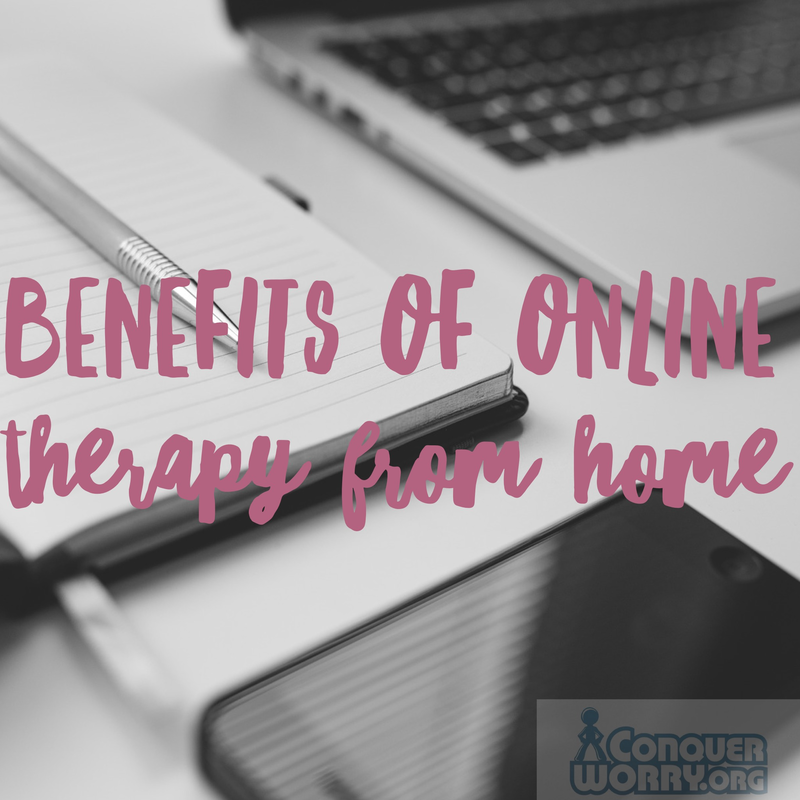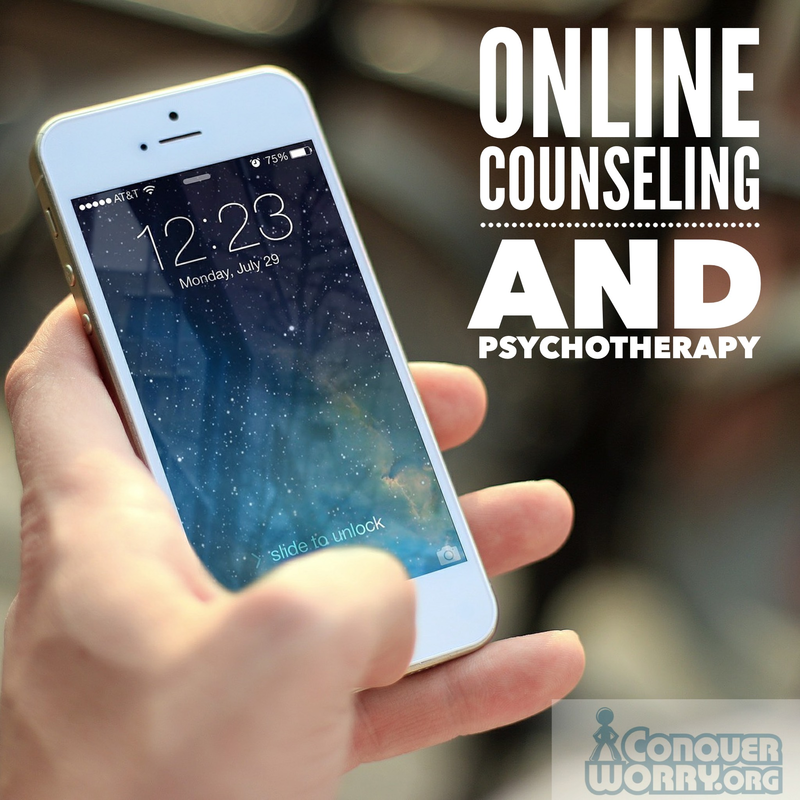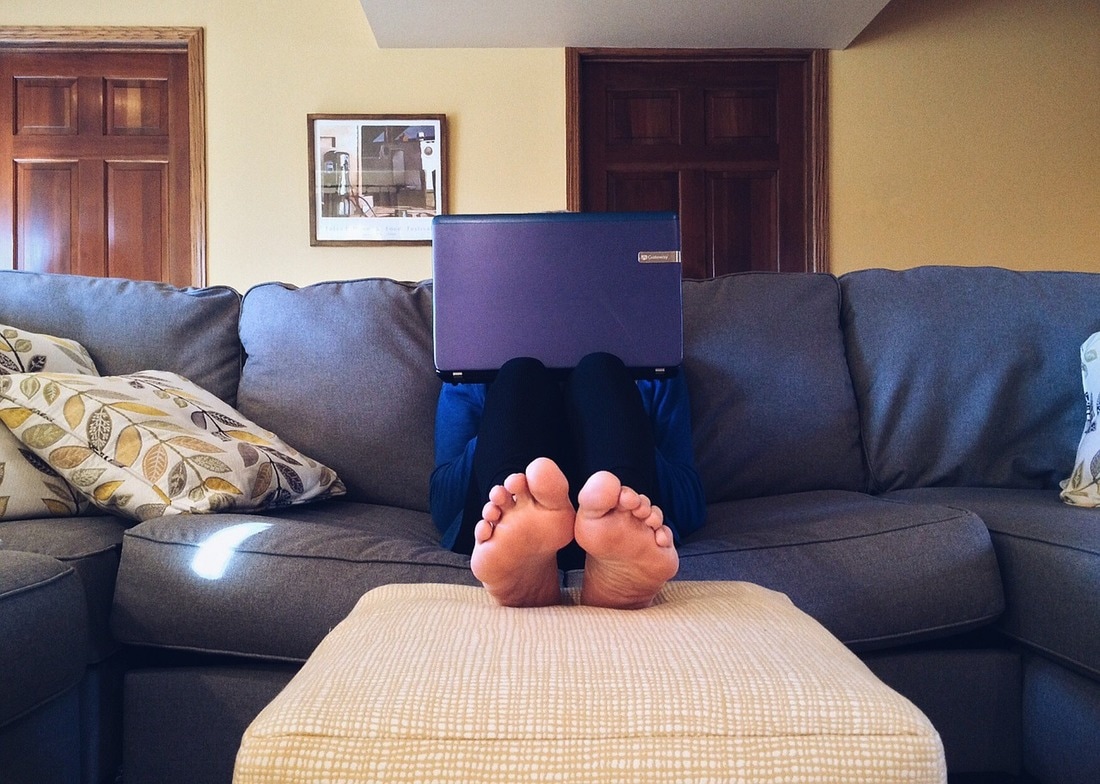|
Article by Irving Schattner Post design and edit by Christy Zigweid Photo by Unsplash via Pixabay made using @WordSwagApp As technology continues to innovate and connect people seamlessly via smartphones, tablets, and laptops, it has become easier to get help for emotional/psychological problems. The advent of online therapy from the comfort and security of home allows trained psychotherapists to assist clients regardless of their physical location. All that’s needed is an internet connection to conduct online therapy sessions. There are many reasons to choose online therapy over traditional in-office counseling. Often it may be difficult to arrive at the therapist’s office because of your remote location or transportation problems. With online therapy, you never have to leave the house and get to reap all of the benefits of face-to-face sessions. Online therapy is less intimidating with less stigma attached, and you can choose between having a single session to try it out for ongoing therapy. It is entirely possible to engage in online counseling with a trained psychotherapist from home, work, or even while traveling. This method of counseling is generally more affordable than face-to-face therapy sessions, and you get to save on gas without the need of traveling to a therapist’s office. Online therapy offers flexible scheduling to accommodate your schedule. People with physical limitations or a limited ability to travel can benefit greatly from online therapy. If you relocate frequently, it gives you the opportunity to keep the same therapist for a continuum of care. The benefits of online therapy are endless and continue to be discovered as more people make the jump to online counseling. Photo by Picography via Pixabay Effectiveness of Online TherapyThere have been many studies pointing to the fact that video therapy and online counseling are effective tools that help reduce the prevalence of anxiety, depression, and a host of other psychiatric conditions. A peer-reviewed study published in the Canadian Medical Association Journal, took a close look at studies of online cognitive behavioral therapy (CBT) conducted between 2000 and 2012. They found that CBT is a widely used and well-researched form of therapy, with most studies saying face-to-face forms of this treatment are highly effective. CBT focuses on reducing negative thoughts, thereby changing behavior and alleviating symptoms. Most of the studies tracked participants for eight weeks to two years after undergoing online therapy sessions from home. Researchers conclusively found that online cognitive-behavioral therapy could effectively reduce symptoms of depression, anxiety, and other mental health issues. In some cases, online therapy was even more effective than traditional in-office therapy. The evidence supporting online therapy’s effectiveness is significant and continues to grow. About the Author - Irving Schattner, LCSW
15 Comments
Article by Irving Schattner Edit and post design by Christy Zigweid Photo by JESHOOTS via Pixabay made using @WordSwagApp Online therapy has been receiving a lot of attention lately. It refers to therapy conducted remotely via the internet or over the phone. There are a number of applications that allow for sessions to take place via computer, iPad, or smartphone. Online therapy has some advantages over traditional in-office therapy: It doesn’t require the time and expense of traveling and it allows clients greater flexibility to engage with a therapist in the comfort of one’s home. For those whom transportation is difficult (they don’t drive and either have to depend on or pay someone to drive them to and from therapy sessions), online therapy can be a practical alternative, offering them access to services normally not available or accessible. Image by PublicDomainPictures via Pixabay Benefits of Video TherapyPersons with a fear of driving or lack of access to alternative forms of transportation, can engage with a therapist in the privacy and safety of one’s home. This may be especially helpful for those suffering with agoraphobia and/or social phobia or generalized anxiety, as well as others with incapacitating physical or health problems that pose extreme hardship in getting to the therapist’s office. Persons suffering with severe depression may also be reluctant, fearful, or unwilling to venture outside of their home and can benefit from face-to-face guidance and support with a trained psychotherapist via the internet. Photo by Wokandapix via Pixabay Clients with busy schedules may find online therapy particularly appealing, which increases their access to mental health services. For those living in remote (rural) areas where mental health services are not readily available or accessible, online therapy offers access to needed mental health services. The advantages of online therapy and counseling include: it's a good option for remote areas, it offers accessibility for those with physical limitations, it's convenient and affordable, and lastly online therapy makes information more accessible to reach a wider audience. About the Author - Irving Schattner, LCSW
|
Build Your Action Based Stress Reduction System
Popular PodcastsOlympian Suzy Favor Hamilton - From Fame to Prostitution to Advocacy
Hall of Fame Basketball Star Chamique Holdsclaw on Mental Resilience Diana Nightingale on her husband Earl Nightingale's Principles for Mental Health Success JoAnn Buttaro on Date Rape & PTSD Survival Story: Its Never Too Late Gabe Howard on BiPolar Advocacy Phil Fulmer on Teen Suicide Prison, Bipolar and Mania with Andy Behrman Columbia Univeristy's Dr. Rynn on OCD Archives
March 2018
Categories
All
|









 RSS Feed
RSS Feed





